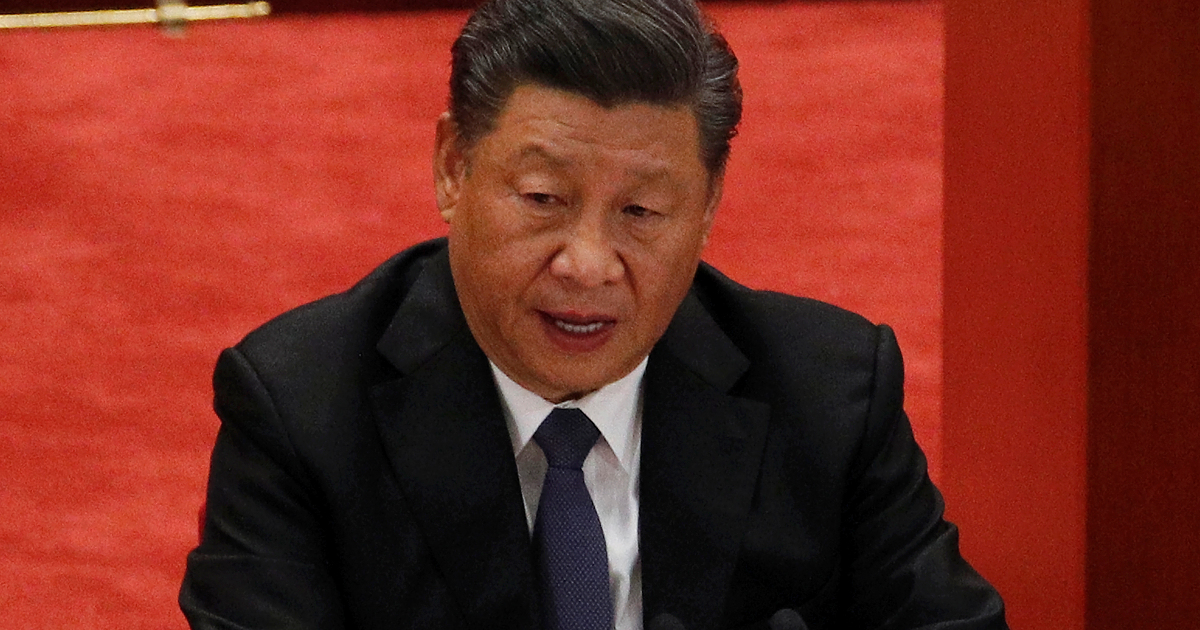No Low Hanging fruits for Prez Xi
As the curtains are set to come down on Year 2021 under the Covid-19 shadow, the Chinese leader Xi Jinping is embarking on a mission to fulfill his life’s ambition. And it is not to limit himself as ruler of China for life but hold sway over the whole world with the help of his country’s wealth and military power. This became amply clear at the sixth plenary session of the Chinese Communist Party (CCP).
The goal may not be a low hanging fruit but President Xi appears determined to exploit to some extent the advantage that comes from the declining US military influence.
For a person with a sky-rocketing ambition, it is hardly surprising that Xi Jinping also fancies himself as the greatest Chinese leader, ahead of the founding father of the world’s most populous nation Mao Zedong, and Deng Xiaoping who released the animal spirits of the Marxist nation by introducing capitalist-style reforms and set China on course for economic miracle.
The November plenary cemented Xi’s eminent status in Chinese political history and heralded what is no more than Xi’s God-Making Movement. Mao may have done a great job of consolidating his power over China but he also presided over some of the worst tragedies in its history, including death of millions due to food shortage and his ill-advised cultural revolution.
Deng was bold enough to jettison some of the archaic socialist ideas and embrace liberal economic reforms that were anathema to a communist country. Where Xi leaves him behind is positioning China at the top, both economically and militarily. But the momentum for this came from the policies of Deng. It might have looked possible but certainly remote in the Deng era of the 1980s to imagine that in a matter of two or three decades, China would be vying for the top global position traditionally reserved for the US.
The grandiose future that Xi foresees for himself and his country, however, has conveniently discounted one crucial factor: China’s image as world’s leading usurer and its unashamed expansionism. It is difficult to believe that the world will readily accept China as the foremost economic and military power. For that to happen, President Xi will have to open multiple war fronts and all poor and developing countries will have to be solely dependent on Chinese money for their survival.
Xi’s soaring hopes can also be checkmated by the US. It cannot be assumed that the US economic power has reached a plateau or that its military will not become more lethal and march ahead of China with technological advances in the times to come.
Although President Joe Biden seems to be in two minds about narrowing differences with China, he will not like to see the US lag behind China in any vital area, be it economy, military prowess or winning friends across the seven seas.
Technologically, the US is way ahead of China and it would not surrender this advantage in the foreseeable future. China has no equivalent to the US to become a major attraction for the people of different nations. China cannot compete with the US soft power and its reputation as a land of opportunities for migrants even though that is under some cloud at the moment.
Most parts of the world have not taken kindly to the Chinese aggressive gestures and moves to intimidate Taiwan. The China has laid claims to nearly all the maritime territories in the seas surrounding it which has savored relations with most of its neighbours.
President Xi seems to enjoy nagging India and sending his army to stray into areas across the Line of Actual Control (LAC). The Dragon has undertaken hectic military preparations on its side of the LAC which is seen in India as a threat to its sovereignty and integrity. The Chinese provocations have not gone unnoticed in the world though a handful of Chinese clients like Pakistan may be vicariously delighted to see India fuming and fretting at frequent Chinese incursions.
China has tried to encircle India but except for its closeness to Pakistan, borne out of a shared animus with India, the other countries in South Asia have discovered that China’s munificence is a sham. It happily lends money to a country for its development projects like building a dam or a port and when the receiver finds itself in financial difficult because of the exorbitant rates of interest, the Chinese move in to acquire the assets they were allegedly helping a friendly country to build.
The questionable nature of Chinese assistance is perhaps best illustrated by the increasing problems that its flagship programme called China-Pakistan Economic Corridor is facing.
Increasing number of Pakistanis are expressing doubts if the CPEC is going to be a real ‘game changer’ for the land of the pure and if so at what cost. The Chinese on their part are unhappy with the slow pace of work and the inability of the Pakistanis to ensure foolproof safety of the thousands of Chinese engaged on the multi-billion venture.
China has built a road to Pakistan and a port at Gwadar in Balochistan which have probably been more useful to the Chinese than Pakistanis, providing a shorter transit route for goods arriving at Gwadar and destined for China.
Usually when two countries are connected by land route, as China and Pakistan are, it leads to increased volume of movement of not only goods and commodities but also people. Despite nearly five decades of their ‘all weather’ friendship, China holds no special attraction for the families of generals, civilian leaders and the elite, who continue to prefer destinations in the West, the very territories they hate so much!
Put differently, if China is unable to make it look attractive for Pakistan how does it aspire to be the world’s leading country—now or decades later. Alnaskar’s dreams have a familiar end, always!












